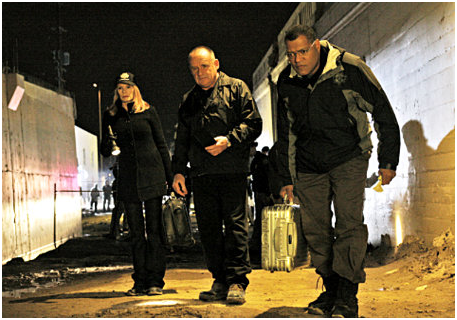Principle #4b- contender, know thyself!
Last time I introduced the idea that you’re enormous advantaged, as a leader, when you’re honestly aware of your vulnerabilities. Ignorant of them, you undermine your own effectiveness.
 These blindspots lead directly to conflict. Sometimes you’re aware of the row they produce. If you’re like most pastors I know, you hate when somebody brings a complaint about you to you. Don’t you?
These blindspots lead directly to conflict. Sometimes you’re aware of the row they produce. If you’re like most pastors I know, you hate when somebody brings a complaint about you to you. Don’t you?
The conflicts you never become aware of are far more dangerous. They’re the “sleeper cells” of terrorist activity hidden in the seemingly benign everydayness of your life and ministry.
In these conflicts, those you offend just move on, usually taking friends and family with them. So, you’re perpetually re-building your team, your staff, your leadership core, your congregation.
Rather than seeing conflict as an opening for intimacy and learning, you push back. Maybe, like most, you think that conflict means something is wrong… with you, with it, or with them.
Allow yourself to consider that conflicts are an inevitable and necessary part of every honest, committed relationship. It is impossible for you to know enough to not need other people: their ideas, perceptions, feedback, and experiences.
What if their disagreeing with you does not diminish you at all? Could it actually serve you? Could it serve whatever it is that the two of you are endeavoring to do?
In this blog, I’ll introduce you to a second area, regarding conflict, where it’s supremely important to “know thyself”.
How have you trained yourself to respond when you’re in conflict? What are your patterns, when it’s “on”? As humans, were predisposed to fight or flight. Some leaders I know do both.
What’s the problem with flight or fight?
When you’re fleeing or fighting, you’re not learning.
And, if you’re not learning any more about the conflict you’re in, about it’s genesis, about your part in its escalation, and about the clues you may have missed along the way—you’re setting yourself up to repeat this over and over.
So, when the impulse is to escape or to dominate in order to be right, my invitation is to get inquisitive. Imagine a crime scene investigator 
who interprets every case as something “bad”, something to do away with as quickly as possible… something to ignore (flight), or to conquer(fight) with great haste.
How many cases would actually get solved?
How much real justice would get done?
When you’re presented with another’s complaint about you, become a CSI agent: perceptive, curious, patient, attentive. Suspend the very natural impulse to get out of this—quick. Challenge yourself to learn as much as you can, and to model a way to respond to conflict.
If you’re like me, you have an Achilles heel in this area as well. As a child and teenager, I was about as likely as anyone to occasional bone-headedness. I was probably as vulnerable as the next guy to forgetting something I’d said I’d do, impulsively leaping before thinking things through, and failing to consider who else might be impacted by something I did or left undone. Rarely did I intend evil toward anyone, and when I learned of my mistake, I tried to repair the breach.
Yet, one of our family dynamics was that it was assumed that I meant to hurt or embarrass or slight another. So regularly and forcefully were my motives impugned that I became unsure of them, myself. I developed a hyper-sensitivity to accusations about my heart and intention.
To this day, I’m vulnerable here. When we disagree over tactics, over ideas, over differing ways to accomplish things, I’m fine. But, when you accuse me of intending evil, of purposing to hurt someone, of premeditated unkindness… my auto-pilot switches on:
I freeze.
I flush.
My heart races.
My mental mechanisms seem to seize up.
Instantly, I’m 11 years old again and I’m caught: my cruel, malevolent heart has been exposed and I didn’t even know it. In this condition, I’m lousy in a conflict! Fight and flight appear irresistible.
Because I’ve studied my vulnerabilities (with the help of a coach and counselor), I’m able to get altitude in real time … when it counts most. I’m able to coach myself in the moment, interrupt my emotional machinery, and return to the here-and-now:
CSI…
Perceptive…
Curious…
Patient…
Attentive…